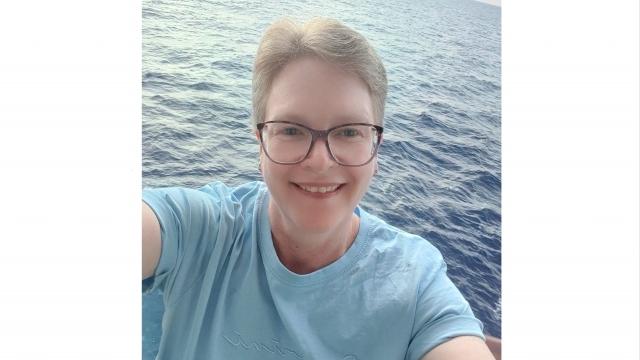
Image: Nicole Macfarlane
This study used a controlled animal model experiment over 12 months between January 2019 and December 2019 in the Gold Coast region of Australia. Forty-eight de-fleshed pig femora were placed in tanks replicating differing aquatic environments, including riverine, oceanic, estuarine and dam, with a further four femora situated terrestrially to act as controls. Twelve femora were placed in each water type, with three removed at intervals of three, six, nine and twelve months as well as four femora on a gravel surface (terrestrial control) surrounded by a cage, with one being removed at the previously mentioned intervals. All femora were recorded prior to and during the fieldwork to examine the effects of taphonomic variables such as individual environment, water chemistry, marine scavenger activity and weathering. The results demonstrated that water chemistry in differing locations plays a large part in the way in which remains decompose and that it is indeed possible to measure and quantify bone diagenesis in differing aquatic environments.
Nicole Macfarlane currently works in Research and Development in the water treatment industry, having been introduced to it shortly after leaving school. She attained her Bachelor of Arts degree in Anthropology, Archaeology, Palaeoanthropology, and History. She then undertook a Master of Criminology and Criminal Justice and a Master of Policing, Intelligence, and Counter Terrorism. Previously, she worked in the Community Corrections field as a senior Case Manager for Probation and Parole in Queensland, supervising intensive and enhanced offenders in the community. Nicole has combined her interest in the water treatment space with those of Anthropology and Criminology to undertake her current research.
This event is online only. No registration required.
Location
Speakers
- Nicole Macfarlane (Ph.D. candidate at ANU School of Archaeology and Anthropology)
Contact
- Stacey Ward
File attachments
| Attachment | Size |
|---|---|
| BIAN_seminar_poster_24_June_Nicole.pdf(676.77 KB) | 676.77 KB |